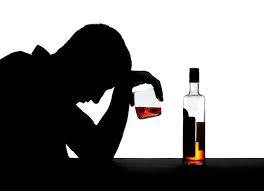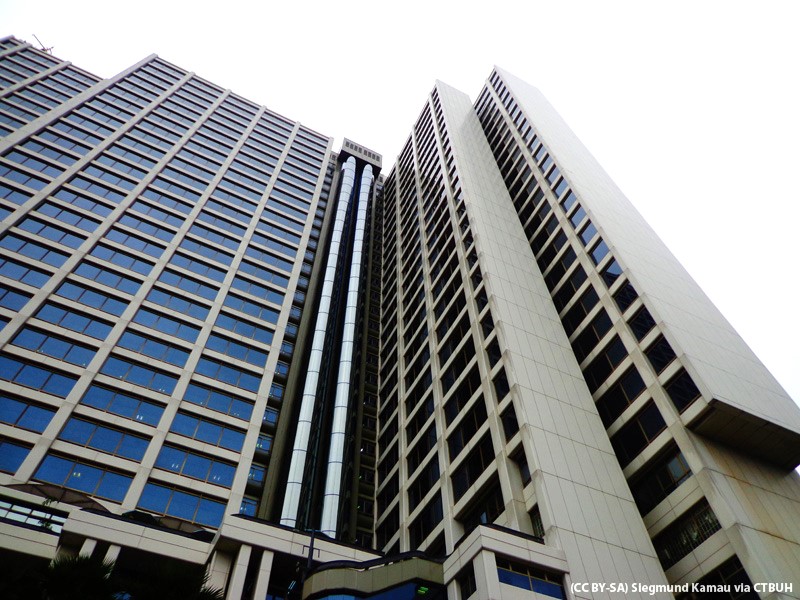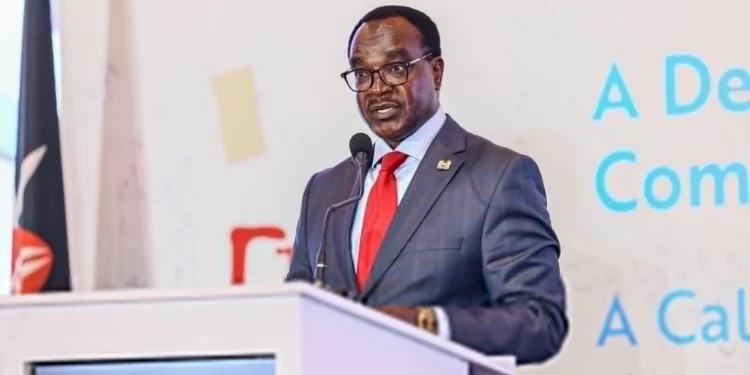If you are a teacher struggling with addiction, stresses, or emotional challenges, know this: there is hope. You are not alone, and your career does not have to end because of a temporary struggle. Across Kenya, educators have faced similar difficulties. Some have battled alcohol dependency, others have experienced severe burnout, and many have endured personal or family trauma. Yet, numerous teachers have managed to reclaim their lives, restore their dignity, and return to their classrooms as effective and motivated professionals.
The Teachers Service Commission (TSC) has been at the forefront of providing structured support and guidance to help teachers navigate these challenges successfully.
The TSC has long emphasized the importance of maintaining discipline among teachers as a cornerstone of professional standards. However, the Commission recognizes that discipline alone is not sufficient when teachers face personal or health-related challenges that affect their performance. Issues such as misconduct, poor professional performance, health problems, or substance abuse may initially trigger disciplinary measures. Nevertheless, TSC stresses that these measures are only the first step in a broader journey toward recovery and reintegration into the education system. By combining accountability with structured support, the Commission ensures that teachers have the opportunity to regain stability, improve their professional competence, and continue contributing meaningfully to Kenya’s education sector.
From Discipline to Human-Centered Rehabilitation
Disciplinary measures are typically initiated when teachers violate professional standards. These can include absenteeism, poor classroom management, or involvement in drugs or alcohol. The TSC has designed these processes to be fair, transparent, and focused on correction rather than mere punishment. The Commission recognizes that addressing the underlying causes of a teacher’s behavior is crucial for ensuring lasting improvement and safeguarding the integrity of the teaching profession. Rehabilitation offers a structured pathway that enables teachers to recover from challenges, restore their well-being, and regain their professional effectiveness.
ALSO READ:
Western region top schools set for high stakes football tournament
To respond to the diverse challenges facing educators, TSC has developed specialized rehabilitation centers and programs. These initiatives were introduced following evidence of the high prevalence of substance abuse among teachers, which surveys have shown can negatively impact classroom performance, student outcomes, and the overall welfare of the teaching workforce. Teachers’ unions, including the Kenya Union of Pre-Primary Education Teachers (KUPPET), advocated strongly for rehabilitation as opposed to punitive measures. They emphasized that addiction and related challenges are medical and psychological conditions that require professional intervention, not simply disciplinary action. Recognizing the importance of teacher well-being, TSC established wellness centers staffed with qualified medical personnel, offering confidential and voluntary treatment, counseling, and therapy. Teachers admitted to these centers are granted paid leave of up to 90 days to complete structured recovery programs. This approach allows them to return to the classroom in good health, motivated, and fully capable of teaching effectively.
Holistic Rehabilitation: Supporting Teachers on Every Level
TSC’s rehabilitation programs are comprehensive and address multiple dimensions of a teacher’s life:
Medical Support: Treatment for physical and health conditions that may hinder teaching performance, including physiotherapy, hospitalization, or specialized medical interventions.
Professional Development: Retraining, mentorship programs, workshops, and temporary role adjustments help restore classroom competence and teaching confidence.
Psychological Counseling: Assistance with stress, emotional challenges, and resilience-building.
Substance Abuse Programs: Referral to accredited treatment centers, therapy, and ongoing monitoring to prevent relapse.
Social and Welfare Support: Guidance for personal or family challenges that may affect professional performance
The rehabilitation process begins with identification and assessment of a teacher’s needs. A personalized plan is then developed, outlining necessary counseling, medical care, or placement in a rehabilitation facility. Implementation of this plan includes therapy sessions, mentorship, professional training, and continuous monitoring of progress. Reintegration into schools is gradual and carefully managed, supported by peer counseling and workload adjustments. Feedback from teachers participating in these programs is actively sought to ensure continuous improvement and effectiveness.
One of the most inspiring examples of TSC’s rehabilitation success is Jane Mwikali, a teacher from Kisii County. Jane faced severe burnout and alcohol dependency, which had begun to affect her classroom performance and her family life. Through TSC’s rehabilitation program, she underwent structured counseling, therapy, and mentorship over a period of three months. Today, Jane is sober, confident, and teaching effectively. Her classroom attendance is consistent, her teaching skills have improved significantly, and she has regained emotional stability. Jane reflects, “Rehabilitation didn’t just save my career. It saved my family and restored my dignity. I feel alive and purposeful again.” Her story demonstrates the profound human impact that structured support and rehabilitation can have on teachers.
ALSO READ:
Impact at the County Level
The impact of TSC’s rehabilitation programs is evident across counties in Kenya. In Murang’a County, rehabilitation centers accommodate approximately 800 teachers who are recovering from substance abuse and other challenges. In Meru County, 28 government-run institutions offer comprehensive support to over 1,000 teachers and students, highlighting the value of community-based interventions. Teachers completing rehabilitation programs consistently report improved classroom attendance, stronger engagement with students, and restored family relationships. Studies indicate that relapse rates among recovering teachers range between 20% and 80%, underscoring the importance of continuous monitoring and holistic interventions to ensure sustainable recovery.
Supporting School Administrators
If you are an administrator leading a school where some of your teachers are struggling with addiction, do not give up. Your role is pivotal in shaping not only the lives of your teachers but also the futures of the students they serve. Addiction is a challenge, but it is not the end of a teacher’s career or potential. With patience, empathy, and the right support systems, recovery is possible.
Provide guidance, mentorship, and access to rehabilitation programs like those offered by TSC. Encourage teachers to seek help early, offer a supportive environment rather than judgment, and ensure that they understand that recovery is a journey, not a punishment. Celebrate small victories, and foster a culture of care, accountability, and wellness within your school. By believing in your teachers and supporting their rehabilitation, you are not only saving careers—you are strengthening the entire school community. Change begins with hope, and as an administrator, you can be the bridge between struggle and success.
Kenya’s approach aligns with international practices, showing that teacher rehabilitation is effective across diverse contexts:
Egypt (Africa): Counseling, stress management, and professional development help teachers recover from burnout.
South Africa (Africa): Employee Assistance Programs (EAPs) provide confidential counseling, therapy, and referral to treatment centers.
Rwanda (Africa): Teacher wellness programs include mental health support, trauma counseling, and leave for rehabilitation.
Botswana (Africa): Structured rehabilitation includes counseling, mentorship, and community-based support.
Germany (Europe): Occupational health policies offer medical rehabilitation, reintegration plans, and gradual return to duty.
Japan (Asia): Counseling combined with mentoring and school-based support ensures early intervention and workload adjustments.
South Korea (Asia): Teacher wellness programs provide mental health counseling, stress management, and paid leave for recovery.
ALSO READ:
United Arab Emirates (Middle East): Ministry of Education programs offer rehabilitation, mentorship, and counseling for teachers experiencing burnout or stress.
These international examples highlight that supporting teachers’ well-being and professional effectiveness produces better outcomes than relying solely on punitive measures. Kenya’s TSC programs adapt these global best practices to local realities.
TSC’s rehabilitation initiatives are part of a comprehensive Teacher Wellness and Support Framework that addresses mental health, workplace stress, and professional development. Over 291,000 teachers have been trained on the Competency-Based Curriculum (CBC) and Junior Secondary School programs. Plans to recruit an additional 111,000 teachers aim to reduce workloads, improve learning outcomes, and enhance teacher wellness. By embedding wellness into training, workshops, and professional forums, TSC fosters a culture of care, empathy, and accountability within the teaching profession. Teachers are encouraged to seek help early, while school leaders are expected to provide guidance, mentorship, and supportive interventions to promote well-being and professional growth.
Kenya is pioneering a model that balances discipline with rehabilitation, holding teachers accountable while providing a clear pathway to recovery. Teachers regain confidence, stability, and professional competence; classrooms benefit from motivated and healthy educators; and the teaching profession itself is being quietly transformed. Jane Mwikali’s story exemplifies the human impact of these programs, showing that rehabilitation restores not only professional skills but also dignity, wellness, and a sense of purpose. By nurturing teachers holistically, TSC is building a stronger, healthier, and more effective workforce capable of delivering quality education to learners across the country.
Administrators, remember that every teacher struggling with addiction or burnout represents an opportunity for transformation. By providing care, guidance, and access to structured rehabilitation, you are helping to rebuild not just careers, but the very fabric of your school community. The journey is challenging, but the results—restored hope, improved student outcomes, and revitalized classrooms—are worth every effort.
By Hillary Muhalya
You can also follow our social media pages on Twitter: Education News KE and Facebook: Education News Newspaper for timely updates.
>>> Click here to stay up-to-date with trending regional stories
>>> Click here to read more informed opinions on the country’s education landscape






